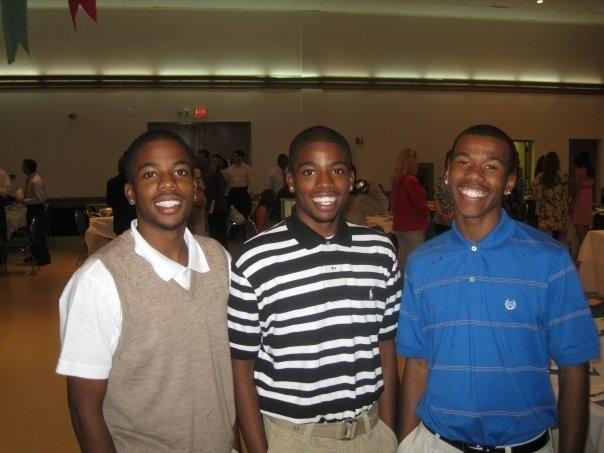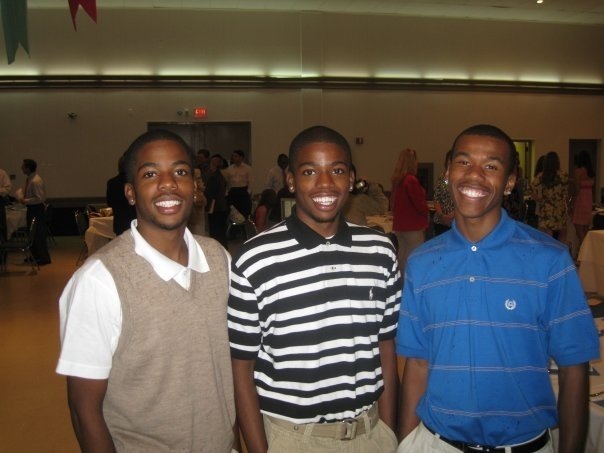When he was nine, Jaiquann Beckham often woke up at the crack of dawn on Sundays to go to daycare, while his single mother worked. Amid drug dealers and street violence in Wilmington, Del., the daycare was usually a positive place for Beckham.
One day stands out for him, however, which changed his life. Their daily trip to the park was canceled, when a man was shot and killed in front of the daycare.
“That was a huge turning point in my life,” said Beckham, now a college junior and volunteer motivational speaker for poor minority students.
Beckham travels around speaking with his classmates, twins Darien and Barien White. They have made television appearances on the Oprah Winfrey show, as well as the Tavis Smiley Foundation Leadership Conference in UCLA.
Beckham did seminars in the Philadelphia school district this past summer, in a predominately Hispanic area. He was shocked to find that many students in the 8th grade could barely read and write.
“That was really eye-opening for me,” he said.
Beckham wants to send the message that just because a student isn’t doing well, it doesn’t mean they are not capable.
“We should take into account things that they go through outside the classroom ... understanding their challenges,” he said.
Many young people want to keep in touch after Beckham’s speeches; he regularly hears things like: “You really inspire me to do well in school. I want to be like you guys and go to college,” said Beckham.
Beckham is currently working on an autobiography, hoping to reach more minority youth.
There are 3.8 million more children living in poverty today than there were in 2000.
“Since the early 2000s, the general poverty rate trend has become much worse,” said Dr. Curtis Skinner, director of family economics security.
According to Skinner, the poverty rate has not improved since the 1960s. “It’s remarkably sad, given the overall increase of standard of living in this country.”
Being a Mentor
The shooting in front of the daycare rocked Beckham’s family. His mother worked hard to move her two sons to a better neighborhood across town. But it was “still the same environment,” Beckham recalled. “We had to deal with sirens and ambulances at two o'clock in the morning.”
At his school pep rally, massive fights broke out where students pushed each other off bleachers, and police had to call reinforcements.
“Our school went on lockdown after that. We never had pep rallies again,” Beckham said.
For Beckham, going from a “99.9 percent” African-American neighborhood where none of his friends went to college, to a diverse high school that opened his eyes to more opportunities.
“You met people whose moms and dads were doctors and engineers. Seeing the way they lived compared to the way I lived, I felt I just wanted a better life ... but I couldn’t have their life. The only way ... was to go to college,” Beckham said.
More than 15 million children in America are from low-income families that earn less than the federal poverty level, according to National Center for Children in Poverty (NCCP).
Beckham emphasized the dire need for kid to have mentors.
“I wouldn’t say I struggled because I was from a low-income family. I would say I struggled because I never really had any male teachers in the classroom that I could look up to.”
According to the 2009 city data of Wilmington, 77 percent of families have single mothers.
As someone who grew up from a single-parent home from the inner city, Beckham feels he can relate to those kids more, compared to older adults.
According to the Big Brothers Big Sisters of New York City, a nonprofit organization whose mission is to provide positive role models for children from broken homes, the effects a mentor has on a child is tremendous.
Anahad, who grew up with his single mom in a housing project, ended up writing for the New York Times with the guidance of his mentor, a successful financial professional.
“If I had stayed in the old neighborhood, I don’t know how I would have turned out,” Beckham said.






